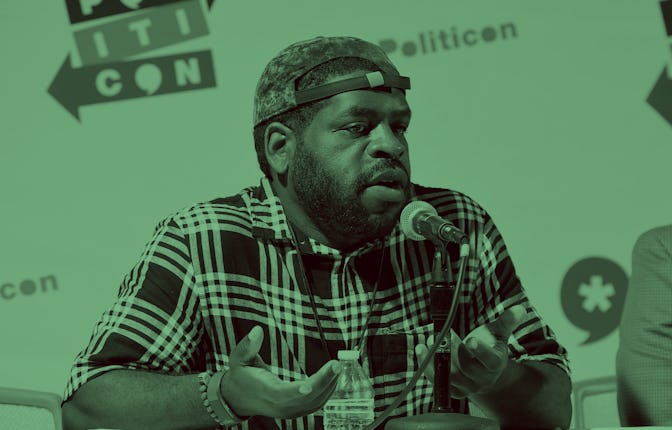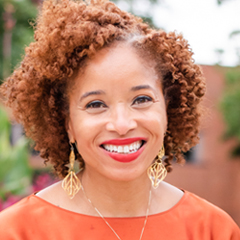The 2021 class of MacArthur Fellows is a demonstration of how genius is in all of us

Genius is more than simply book smarts — you have to impact the world. Even though the MacArthur Foundation refrains from using the term to describe the awardees of its MacArthur Fellows Program, the prestigious $625,000 prize is often referred to as the "Genius Grant." And today, the foundation revealed its Class of 2021, a sterling example of how genius is never monolithic.
The full list of 25 MacArthur Fellows Class of 2021 is as follows: Hanif Abdurraqib, Daniel Alarcón, Marcella Alsan, Trevor Bedford, Reginald Dwayne Betts, Jordan Casteel, Don Mee Choi, Ibrahim Cissé, Nicole Fleetwood, Cristina Ibarra, Ibram X. Kendi, Daniel Lind-Ramos, Monica Muñoz Martinez, Desmond Meade, Joshua Miele, Michelle Monje, Safiya Noble, J. Taylor Perron, Alex Rivera, Lisa Schulte Moore, Jesse Shapiro, Jacqueline Stewart, Keeanga-Yamahtta Taylor, Victor J. Torres, and Jawole Willa Jo Zollar. These brilliant figures range from poets and painters to civil rights activists and documentary filmmakers. With the global pandemic, Black Lives Matter protests, and one of the most contentious U.S. presidential elections in recent memory, the last two years have forced everyone around the world to reimagine what the human experience.
"As we emerge from the shadows of the past two years, this class of 25 Fellows helps us reimagine what’s possible. They demonstrate that creativity has no boundaries. It happens in all fields of endeavor, among the relatively young and more seasoned, in Iowa and Puerto Rico," MacArthur Fellows managing director Cecilia Conrad wrote in a statement.
During a precarious time in human history where uniting with your common man on a global scale is essential, much of the genius of the MacArthur Fellows is predicated on elucidating that interconnectivity of all people. Abdurraqib is an award-winning music critic, essayist and poet who released his latest book A Little Devil in America: Notes in Praise of Black Performance in March 2021, focusing on the inextricable influence of Black performances on American culture. He eruditely uses Black performances as conduits for social commentary on race relations at the time. In his book, he highlights how some white dancers performing African dances in Black face had been emboldened enough to believe they could perform Black art better than Black people. To the outside world, it's just dancing. To a genius like Abdurraqib, it's a look into American history.
In a similar vain, other MacArthur Fellows uncover the brilliance in the forgotten. Art historian and curator Nicole Fleetwood's book Marking Time: Art in the Age of Mass Incarceration and museum exhibition applies the meticulously analytical and reverential interpretations usually reserved for classical art and applied it to the lesser known work of those incarcerated. Prison can strip a person of their identity, and Fleetwood took the time to reconcile the art the prisoners were making with the conditions they were making the art in. That's because true genius is being brave enough to make sense of what appears to be contradictory in life — flaws and all.

Each of the 25 MacArthur Fellows of 2021 will receive $625,000 over the next five years and join an illustrious list of fellow recipients that have shaped the fabric of American culture. After releasing his critically-acclaimed 2015 novel Between The World And Me along with making one of the most cogent cases for reparations in a 2014 essay on The Atlantic, author Ta-Nehisi Coates was inducted as a member of the 2015 class of MacArthur Fellows. Twenty years earlier, Kindred author Octavia Butler became the first science fiction writer to receive a MacArthur Fellowship.
Often times, the label of a genius is thrown around as an abstract concept to describe high intelligence. Let the 2021 class of MacArthur Fellows show you how genius is determined by impact more than how much you can remember, and any one of us can be geniuses.